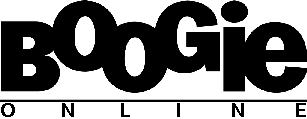Boogie Pensacola Y2K Coverage
Haven't They Fixed It?
I Thought They Fixed Everything!
Governments and businesses have spent billions of dollars fixing Y2K bugs. However, the bugs can be difficult to find. Even programs that have been certified as "Year 2000 compliant" are sometimes not.
"Our best clients still have 40 to 50 errors per million lines of code," said one consultant who proofreads "Y2K-ready" software. "Half of those could corrupt data or crash systems."
Many small- and medium- sized businesses haven't done anything about Y2K. They plan to fix any problems as they occur. A 1998 poll found that 50% of all enterprises planned no year 2000 testing.
Worldwide, other problems prevented foreign governments and businesses from tackling the problem. Many Asian countries have barely recovered from their 1997-1998 currency crisis, and did not have the money to spend on Y2K fixes. European countries were more concerned with preparing software for their new currency, the euro. Many developing nations did not have the resources to address Y2K.
But They Say They're Ready!
Governments and businesses all say that most or all of their critical systems are safe. However, few have been independently checked.
"There is a tremendous gap between the public face many corporations and governments put forward on this issue ('we will have it well in hand') and the private fears and concerns expressed by many information technology experts," says the U.S. Naval War College's Y2K report. "They typically highlight a rosier-than-average perspective on Y2K, quite often out of official fear of 'alarming the public unnecessarily.'"
"Some corporations and nations concerned about their image downplay real Y2K problems," said the U.S. Senate's Y2K committee in September 1999. Y2K readiness is mainly based on self-reporting, which the Senate committee compares to "letting students grade their own tests."
Many companies that previously claimed their software was Y2K-ready now admit that it is not. A watchdog organization found that in November 1999, 338 of 426 changes to the Y2K readiness status of off-the-shelf hardware and software were negative: products previously considered fixed, weren't. In December 1999, Microsoft changed the Year 2000 compliance status of nearly one hundred of its products from "Y2K Compliant" to "Under Revision."
